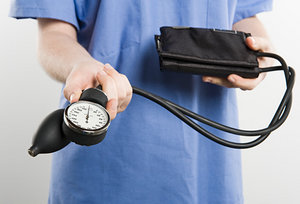How To Maintain Good Blood Pressure
By Julie T. Chen, MD
For many people, blood pressure isn't something we think about every day. For those with high blood pressure issues, even then, it may not be something they regularly think about. But...our blood pressure is very important in how we feel.
Symptoms that may indicate too high of a blood pressure could be, but are not limited to, chest pain, dizziness, headaches, blurry vision and even nausea. There are even symptoms associated with too low of a blood pressure.
So, what can you do to keep your blood pressure in the in the healthy range so that you can not think about it, but also know that you're not thinking about it because it's in a good range?
The top three basic factors that have a major impact on our blood pressure are diet, stress level and activity level.
- Diet: A diet rich in vegetables, legumes, nuts and whole grains are healthiest for your blood pressure management. These foods are rich in vitamins and minerals which help your body regulate blood pressure. For example, magnesium is known to help lower blood pressure in patients with hypertension. If you are low in magnesium, getting extra magnesium through foods or supplements can help but you should have your doctor monitor your levels to make sure you are not taking too much.
-
 Stress management: Most people are aware of the fact that stress causes high blood pressure. The signals released from various cells in our body when we are stressed causes our blood vessels to contract and function in a way where our blood pressure rises. If this is your normal baseline, it's not healthy for your blood vessels and your overall health. So, stress management is essential for those with hypertension to help manage your levels. Simply setting aside time to de-stress by taking walks, journaling, listening to calming music, meditating or doing yoga can help with stress management. The key is to make it a priority and do it.
Stress management: Most people are aware of the fact that stress causes high blood pressure. The signals released from various cells in our body when we are stressed causes our blood vessels to contract and function in a way where our blood pressure rises. If this is your normal baseline, it's not healthy for your blood vessels and your overall health. So, stress management is essential for those with hypertension to help manage your levels. Simply setting aside time to de-stress by taking walks, journaling, listening to calming music, meditating or doing yoga can help with stress management. The key is to make it a priority and do it.
- Activity level: Exercise is essential to the health of our blood vessels. It also helps us de-stress and helps us sleep better. All of which are essential for maintaining good blood pressure. When we exercise, our body releases happy chemicals that helps our body to react accordingly. Many people balk at the idea of exercise because it seems to be an added stress and another thing to do on an already long "to-do" list. But, I usually recommend to my patients in my clinic of integrative medicine in San Jose CA that they should just make an effort to move. You don't have to carve out 45 minutes and get into work out gear. I'd rather you go walk around the block or go up and down the stairs in your office building a couple times per day in regular clothes just to be active. If you make exercise into a big ordeal, you may not do it. Just think of it as getting up and moving. That's all. Then hopefully, you'll get some exercise in every day whether it's 5 minutes or 20 minutes or 60 minutes...just get moving.
Our weight and regularity of sleep is also important to management of blood pressure. But both these factors are heavily influenced by the top three factors of stress management, diet and exercise. If you address the top three issues, your weight and quality of sleep should improve as well. When all these factors are addressed, you have a better chance at maintaining a good blood pressure range.
Dr. Julie T. Chen is board-certified in internal medicine and fellowship-trained and board-certified in integrative medicine. She has her own medical practice in San Jose, Calif. She is the medical director of corporation wellness at several Silicon Valley-based corporations, is on several medical expert panels of Web sites and nonprofit organizations, is a recurring monthly columnist for several national magazines, and has been featured in radio, newspaper, and magazine interviews. She incorporates various healing modalities into her practice including, but is not limited to, medical acupuncture, Chinese scalp acupuncture, clinical hypnotherapy, strain-counterstrain osteopathic manipulations, and biofeedback. To learn more, visit www.makinghealthyez.com.

